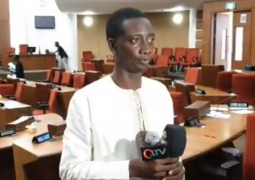
Defence counsel Lamin J. Darboe was given 21 days to file his brief and the state counsel Akawa was also given 21 days to reply and then 7 days to reply on points of law.
In their application, they sued the Attorney General and Minister of Justice, requesting the Supreme Court to declare that the amendment of Section 32 of the Women’s Act of 2010 along with the insertion of new Sections 32A and 32B under the Women’s (Amendment) Act No. 11 of 2015, contravenes the 1997 Constitution of The Gambia.
The defence counsel argued that the amendments were inconsistent with Sections 17(1) and (2), 25(1)(c), 28(1) and (2), 32, and 33(2) and (3) of the Constitution, and were therefore ultra vires, null and void.
Secondly, the plaintiffs sought an order from the apex court to strike out Sections 32A and 32B of the Women’s (Amendment) Act No. 11 of 2015, so that only Section 32 of the original Women’s Act of 2010 would remain.
Thirdly, they requested a declaration that the National Assembly acted beyond its legislative authority in passing the 2015 Amendment, and that the Act was void and of no effect ab initio for its inconsistency with the aforementioned constitutional provisions.
At the first hearing of the case, State Counsel Akawa raised a preliminary objection, stating that the Supreme Court lacked the jurisdiction to hear the matter.
“This Court does not have the jurisdiction to hear and determine matters relating to the interpretation or enforcement of Sections 17 to 33 of the Constitution. The suit is otherwise incompetent,” he argued.
He maintained that human rights issues fall exclusively within the jurisdiction of the High Court.
However, the Supreme Court dismissed the application of the state prosecution and stated that the court has the jurisdiction to hear the lawsuit.
Read Other Articles In Headlines





